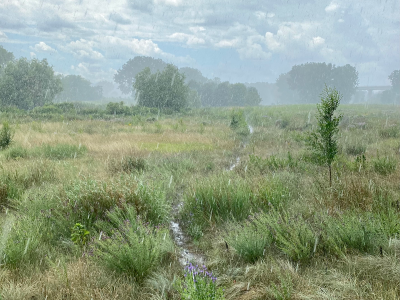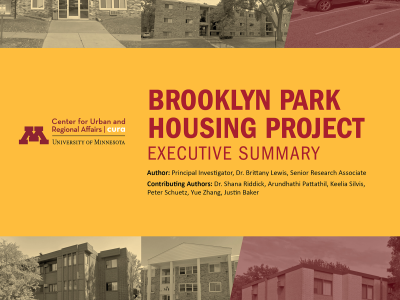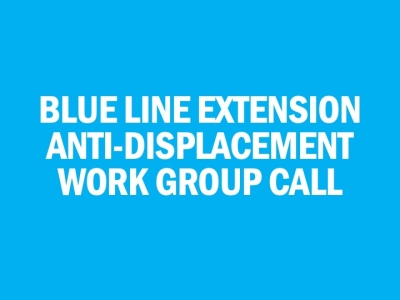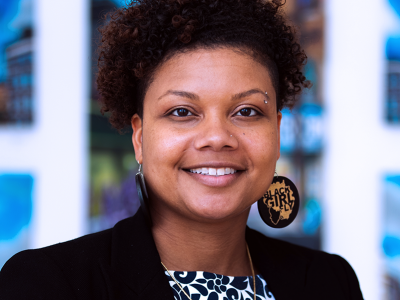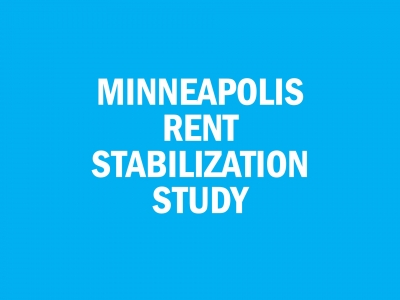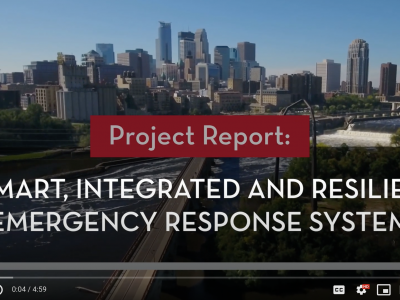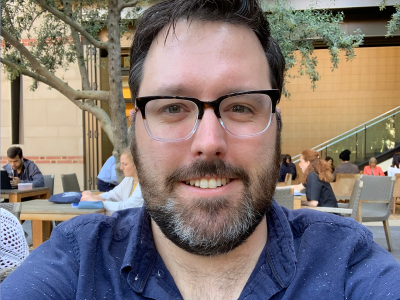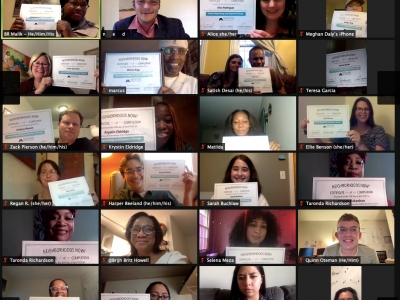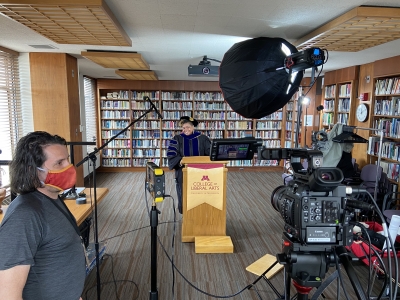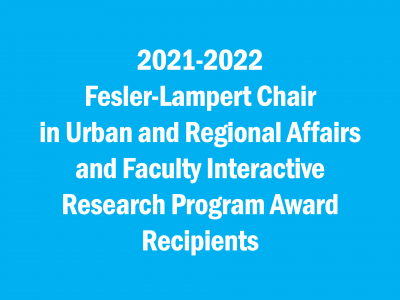The ancestral practice of the Ohunkankan (“Making relatives by telling the stories”) is an inclusive and time-honored way for Dakota people to renew our relationship with Ina Makoce (Mother Earth) and all our relations by gathering together for the seasonal community theatrical sharing of mythic and contemporary stories. Participants will build and showcase their growth and learning of Dakota language and dramatic performance skills in devised community Ohunkankan, a staged storytelling production featuring an all-ages cast of Dakota language learners and speakers, at the Bruce Vento Nature Sanctuary in St. Paul, a sacred site of great significance known to Dakota people as Wakan Tipi…
Last Friday, St. Paul Mayor Melvin Carter announced the formation of a 41-Member Rent Stabilization Stakeholder Group. The Center for Urban and Regional Affairs (CURA) has been selected to convene this group with CURA Director Edward Goetz and CURA Director of Community Based Research C Terrence Anderson acting as lead facilitators. The group will meet February through May to consider improvements and enhancements to rent stabilization in St. Paul. A final report will be completed by this summer. The rent stabilization ballot measure was approved by voters 53% to 47% in the election last November.
…
Contributing Authors: Dr. Shana Riddick, Arundhathi Pattathil, Keelia Silvis, Peter Schuetz, Yue Zhang, Justin Baker
Project Funders: Brooklyn Park Economic Development Authority, City of Brooklyn Park; Hennepin County; and State of Minnesota, Minnesota Housing Finance Agency.
In July of 2016, the Minneapolis Innovation Team, in partnership with HOME Line, published a report on Evictions in Minneapolis, which was inspired by Matthew Desmond’s book Evicted. The Innovation Team’s report found that 50% of tenants in the 55411 & 55412 zip codes were evicted…
The Center for Urban and Regional Affairs (CURA) invites proposals for our Faculty Interactive Research Program (FIRP). University of Minnesota faculty are critical resources in exploring issues and concerns important to Minnesota, such as the criminal justice system, demography, state or local economic development, education, employment, energy, the environment, health, housing, state and local government, welfare and poverty, human and social services, transportation, or land use and development.
The FIRP encourages University faculty to carry out…
Background
The METRO Blue Line Extension Light Rail Transit project will extend the existing Blue Line from Target Field Station in Minneapolis northwest to Brooklyn Park and connect communities along the way. The communities along the way include North Minneapolis, Robbinsdale, Crystal, and Brooklyn Park. Currently, the project is deciding between two alignments in North Minneapolis. Around this alignment work, CURA has been contracted by Hennepin County and the Metropolitan Council to lead the Blue Line Extension Anti-Displacement Project. This project serves to lead the community through a project to examine the extent to which displacement is or will…
Dr. Brittany Lewis, CURA’s senior research associate, has been named a 2021 Community-Engaged Scholar. Dr. Lewis directs CURA’s large-scale community-based action research agenda advancing interdisciplinary public scholarship in urban studies, African American studies, gender studies, and public policy while maintaining her role as a community activist and thought leader.
The President’s Community-Engaged Scholar systemwide award program recognizes up to ten scholars—faculty or professional academic or administrative employees (P&A)—each year for exemplary community-engaged scholarship in their respective field(s) of inquiry. From a competitive pool of Community-Engaged…
Hennepin County Board of Commissioners approved a contract with the Center of Urban and Regional Affairs (CURA) to establish an Anti-Displacement Workgroup related to the design and construction of the METRO Blue Line Extension light rail. This action to invest in anti-displacement is intended to support corridor residents, businesses, and equitable development in the corridor.
…
Workgroup will comprise diverse perspectives
With community input, the project team designed an initial work plan, and local groups submitted proposals for the contract. A committee with corridor community and business…
We believe that support and fair treatment of individuals with criminal records is fundamental for a functioning society. The fact that our criminal justice systems create disparities means our society is not working properly. Criminal records impact individuals and families far beyond the punishment of a crime and keep people from living a good life, which everyone has a right to.
Project Goals
As a project-based initiative, we seek projects and work that align with our values and goals to support our mission and vision.
Many 911 systems in the United States use older technologies that struggle to account for the diverse ways of communicating during an emergency or disaster, and dispatchers taking calls must make rapid decisions based on limited information. While newer technology can identify callers’ locations, there is an opportunity to explore how technology can assist in determining the reason for the call and suggesting appropriate responses.
Given this opportunity, HUP recently coordinated a connection between Hennepin County and Professors Tom Fisher (College of…
Congratulations to Dr. Anthony Damiano on earning his PhD from the Humphrey School of Public Affairs. As a graduate student and PhD candidate, Dr. Damiano has been a valuable part of CURA’s team, working on research projects covering gentrification, racially concentrated areas of affluence, and rent stabilization, among other topics.
Here is an overview of his dissertation presentation Urban Development and Change in an Age of Inequality:
The Neighborhood Leadership and Organizing program wishes to congratulate recent graduates of our Spring 2021 Neighborhoods Now! cohort. Neighborhoods Now! is an innovative community educational series to strengthen the work of individuals and organizations working in neighborhoods so they can organize to win issues for people and places, build power to change systems for racial equity and economic justice, build organizations whose leadership is reflective of the community, and build diverse and effective cross…
The Hennepin-University Partnership's (HUP) project to connect the Hennepin County Elections Division with University of Minnesota student volunteers to process absentee ballots has been recognized with an Achievement Award from the National Association of Counties (NACo). The award honors innovative, effective county government programs that strengthen services for residents.
For this partnership in the 2016 general and 2018 midterm elections, a total of 600 students provided 3,000 hours of volunteer effort. Mark Chapin, the Director over the Elections Division, praised the partnership. “Without the hundreds of student volunteers helping to process and count absentee ballots…
Announcement from CLA Commencement 2021 website. The virtual commencement is Sunday, May 16, 1 p.m. CDT.
Dr. Brittany Lewis delivering CLA’s 2021 virtual Commencement ceremony keynote speech. Image from LATIS Video ServicesDr. Brittany Lewis is a well-respected community engaged qualitative scholar, thought leader, speaker, and author known for bringing those most often locked out of local decision-making processes to the action research table. Dr. Lewis is the Founder and CEO of Research in Action, an urban research, evaluation, community…
CURA is pleased to announce the recipients of this year′s Fesler-Lampert Chair in Urban and Regional Affairs and Faculty Interactive Research Program Award.
Forrest Fleischman from the Department of Forest Resources is the 2021-2022 Fesler-Lampert Chair in Urban and Regional Affairs with this project, Urban Environmental Policy Advocacy: How Citizens Shape Cities’ Environmental Policy Agenda in the Twin Cities.
Additionally, three Faculty Interactive Research Program proposals were funded:
- Samuel S. David (Department of Curriculum and Instruction, College of…
